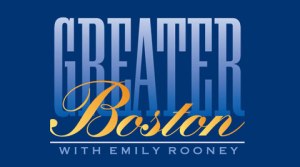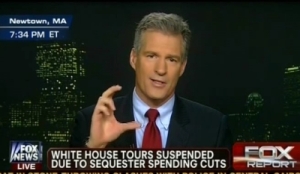
A decision by WCVB-TV (Channel 5) to run a disclaimer in front of an offensive advertisement by Rayla Campbell, the Republican candidate for secretary of state, illustrates the different regulatory frameworks that exist for broadcast stations and other types of media.
Matt Stout of The Boston Globe reports that Campbell’s 30-second ad consists of an attack on Maia Kobabe’s book “Gender Queer: A Memoir,” and asks viewers if they want children reading what she describes as “child pornography.” “Gender Queer” has become a focus of the right-wing culture war against education, and Campbell has emerged as an outspoken, foul-mouthed warrior.
At her speech before the Republican State Convention earlier this year, she said that Massachusetts teachers are “telling your 5-year-old that he can go suck another 5-year-old’s dick.” Her ad isn’t nearly that bad, but there’s a context. And no, no euphemisms or brackets here at Media Nation — you deserve to know exactly what a major-party candidate for statewide office said in front of convention delegates.
Please support this free source of news and commentary for just $5 a month.
Now, if Campbell’s ad had been submitted to a print newspaper, a digital news outlet or, arguably, a cable-only station, the folks in charge would have been free to reject it. Just as she has a First Amendment right to embarrass herself, those media organizations have a First Amendment right not to promote speech they disagree with. But broadcast is different. Since the 1930s, the Federal Communications Commission has regulated the airwaves in the public interest on the grounds that broadcast frequencies are scarce, publicly owned resources. Thus, over-the-air television and radio stations must adhere to certain rules. Many of those rules, such as the fairness doctrine and the equal-time provision, have faded way over time, but some vestiges of the FCC’s regulatory regime still exist.
According to Stout’s article, WCVB’s disclaimer says that Campbell’s ad is “not endorsed” by the station, adding that “under federal law, WCVB is obligated to air the following ad without censorship.” The disclaimer also reads, “Please be advised the ad contains language and/or images that viewers may find offensive.”
Stout quotes a couple of experts, including my friend and former “Beat the Press” colleague John Carroll, who says it’s not entirely clear as to whether WCVB really did have to run the ad, calling it a “complicated issue.” Indeed it is. Joan Stewart, a lawyer who specializes in FCC rules, told Gray TV that those rules “only pertain to federal candidates” — in other words, president, vice president, U.S. Senate and U.S. House.
Campbell told the Globe that stations other than WCVB told her that they were restricting their ad budget to federal or gubernatorial candidates. We can’t know if that’s an accurate assessment of what she was told, but if Stewart is correct, then WCVB may have been under no obligation to run Campbell’s ad since secretary of state is not a federal office.
But wait. The FCC’s own website says that though stations are only required to provide “reasonable access” to federal candidates, they must also provide “equal opportunities” to “legally qualified federal, state, and local candidates.” Campbell definitely does fall under that category.
So it appears that the correct answer is “Who knows?” Someday, of course, broadcast is going to disappear, presumably taking the FCC’s mandates along with it. At that point I hope we can move into a better world in which all media outlets have the same First Amendment rights to accept or reject advertising as they see fit.
 Emily Rooney is taping the intro to a segment of WGBH-TV’s new local public-affairs show, Greater Boston. Or trying to, anyway. It’s been a long day. Her feet are killing her. And her first few attempts at hyping an interview with Charles Murray, the controversial academic who’s currently promoting his new book on libertarianism, haven’t gone particularly well.
Emily Rooney is taping the intro to a segment of WGBH-TV’s new local public-affairs show, Greater Boston. Or trying to, anyway. It’s been a long day. Her feet are killing her. And her first few attempts at hyping an interview with Charles Murray, the controversial academic who’s currently promoting his new book on libertarianism, haven’t gone particularly well.